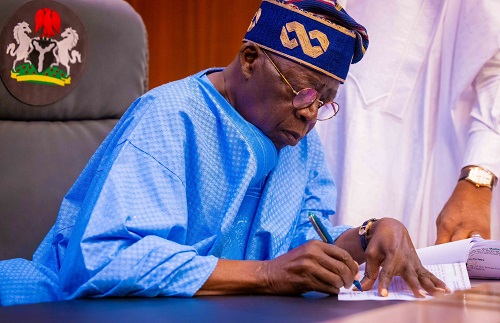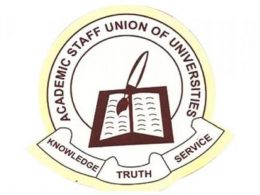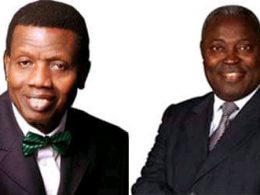Exactly one month to the commencement of campaigns for the presidential and National Assembly elections, the Independent National Electoral Commission has warned political parties and candidates against the use of masqueraders, public facilities and religious centres for campaigns.
The commission asked political parties to align strictly with the provisions of the Electoral Act to avoid sanctions as stipulated by the Act. INEC had fixed September 28 for the commencement of campaigns for the presidential and National Assembly, while the elections would hold on February 25, 2023.
Relying on Section 92 of the Electoral Act, 2022, INEC National Commissioner and Chairman of its Committee on Information and Voter Education, Mr Festus Okoye, in a recent interview with our correspondent explained that the law expected political campaigns to be civil and devoid of abuse.
In previous electioneering, some political parties and their candidates were wont to engage in all kinds of theatrics, including the use of masqueraders, to entertain the crowd and add colour to their rallies. Some also covertly campaigned in public offices and worship centres, especially churches and mosques, to woo civil servants and worshippers, respectively.
But quoting from the provisions of the section, Okoye said, “Section 92 of the Electoral Act makes it mandatory that a political campaign or slogan shall not be tainted with abusive language directly or indirectly likely to injure religious, ethnic, tribal or sectional feelings.
“Therefore, abusive, intemperate, slanderous or base language or insinuations or innuendoes designed or likely to provoke violent reaction or emotions shall not be employed or used in political campaigns.
“Subsection 3 states that places designated for religious worship, police stations and public offices shall not be used for political campaigns, rallies and processions; or to promote, propagate or attack political parties, candidates or their programmes or ideologies.
“Masqueraders shall not be employed or used by any political party, aspirant or candidate during political campaigns or for any other political purpose.”
As witnessed in some previous elections where parties hired thugs to repel detractors, Okoye in reference to subsection (5) of Section 92, warned parties and candidates against training or enlisting the help or services of individuals or groups for the purpose of displaying physical force or coercion in a manner that could arouse reasonable apprehension during the campaigns.
Sunday PUNCH reports that in previous campaigns, some political parties engaged thugs to ensure orderliness as well as prevent political enemies from disrupting their rallies.
In reference to Section 6 of the Act, however, Okoye added, “A political party, aspirant or candidate shall not keep or use armed private security organisation, vanguard or any other group or individual by whatever name called for the purpose of providing security, assisting or aiding the political party or candidate in whatever manner during campaigns, rallies, processions or elections.”
Imprisonment awaits offenders
Speaking on the need for compliance, the INEC national commissioner pointed out that the Act already provided for sanctions for violators and that adherence to the law should be prioritised by all the parties and candidates.
In tandem with subsections 7(a)(b) and 8, Okoye stated, “A political party, aspirant or candidate who contravenes any of the provisions of Section 92 of the Act commits an offence and is liable on conviction in the case of an aspirant or candidate, to a maximum fine of N1,000,000 or imprisonment for a term of 12 months; and in the case of a political party, to a fine of N2,000,000 in the first instance, and N1,000,000 for any subsequent offence.
“A person or group of persons who aids or abets a political party, an aspirant or a candidate in organising or equipping any person or group for the purpose of enabling them to be employed for the use or display of physical force commits an offence and is liable on conviction to a fine of N500,000 or imprisonment for a term of three years or both.”
“The commission will only make a determination of the number of uncollected cards at the stoppage of collection of the cards close to the period of election.”
Also, when asked the number of Bimodal Voter Accreditation System the commission would procure to replace those lost during attacks on some INEC offices, Okoye said the procurement was ongoing and the commission would have the number it needed before the polls.
Okoye added, “The commission will procure and deploy at least 200,000 BVAS for the 2023 general elections. The commission introduced an all-in-one device to improve the quality and efficiency of electoral services.
“The multi-functional integrated device introduced by the commission has different acronyms for the different activities it is used for. During the registration of voters, it is called the INEC voter enrolment device. During the accreditation of voters, it is called Bimodal Voter Accreditation System, also known as BVAS. During the result upload, it is called the INEC result viewing device.
“The device will be deployed in the 176,846 polling units in Nigeria and the redundancies will be deployed in the 8,809 registration areas as backup. The commission continues to procure the device and we are confident that we will have the required number way ahead of the elections.”
However, the commission has maintained that vote-buying remains a dent on the electoral process as it impairs the primacy of the voter to exercise rational choices and diminishes the sanctity of the vote.
The INEC Chairman, Prof Mahmood Yakubu, had expressed the commission’s support for the establishment of the Electoral Offences Commission and Tribunal to address electoral offences. He spoke on Tuesday at the public hearing organised by the House of Representatives for the bill to establish the commission.
Okoye, however, stated, “Our considered view is that the conduct and management of elections is a multi-stakeholder venture and all the components of the unit must organise for the delivery of electoral services.
“All the stakeholders must work in unison to stamp out the virus of vote-buying and selling. The commission will continue to improve the electoral environment to actualise the secrecy of the vote. The commission will continue to cooperate and consult with the security agencies in terms of arrest, investigation and prosecution of vote buyers and sellers.
“The commission supports the setting up of an Electoral Offences Commission and Tribunal that will have the power to arrest, investigate and prosecute electoral offenders. We must break the cycle of cynical electoral impunity in Nigeria.”
‘Issues-based campaigns critical’
Meanwhile, in addition to the provisions of Section 92 of the Electoral Act that speaks to the prohibition of certain conduct at political campaigns, there is an increasing call on political parties and candidates to base their campaigns on issues and not personal attacks for the benefit of all.
Former President Goodluck Jonathan and his deputy, Namadi Sambo, at the 2022 IBB Legacy Dialogue in Abuja on Thursday asked candidates and their supporters to shun hate speech and focus on issues.
Sambo said, “As we approach the critical stage towards the 2023 general election in Nigeria, it is important to use this opportunity to call on all political parties and indeed, candidates and other key stakeholders to adopt issue-based campaigns. We must all shun the use of hate or foul language and mudslinging to avoid overheating the polity.”
Similarly, the Chairman of the Transition Monitoring Group, Auwal Rafsanjani, explained that some political parties indeed had no programmes or agenda and were only interested in getting power, which made them focus on irrelevant things. He called on Nigerians to resist such parties.
She said citizens needed to set the agenda so that they would not be distracted, adding, “The next election is about the soul of this country and if we do not make the right decision to vote for the right people, we may lose our future.”
IPAC speaks
Meanwhile, the National Chairman, Inter-Party Advisory Council, Yabagi Sani, said people would love to see issues-based campaigns, but he expressed worry that Nigerian politics was still characterised by sentiments.
He stated, “Of course, we would like to have issues-based debates, but our politics is characterised by some of these dichotomies and then people are dragged into some of these things. It also played out during the primaries. We know the situation we are confronted with is one that requires somebody who can take us out of this quagmire but it will be up to the media to set the agenda.
“Yes, Nigerians also have a role to play but the challenge is how they can rise above ethnic and religious sentiments, because it’s like there is a competition between the three major tribes to grab Nigeria. That is what we face.”
We’re ready – APC
The ruling All Progressives Congress said it was ready to engage voters based on issues and not frivolities.
The party’s spokesperson, Felix Morka, said in an interview with our correspondent, “As the ruling party, we have complete interest in discussing the issues and the role of the government in the lives of our people. Our focus is to share with Nigerians the work this government has done; how the government has impacted the lives of people and how our presidential candidate, Asiwaju Bola Ahmed Tinubu, and his running mate, Kashim Shettima, will mobilise every resource to make life meaningful for them. That’s all we are interested in.
“Those who want to focus on other matters or personal issues and talk about how people dress, whether they wear an expensive suit or not; they can focus on those things. But we are interested in discussing the issues and convincing Nigerians that on the issues that affect their well-being, this government has done well. The next leadership we offer will do better than the current government has done.”
PUNCH










